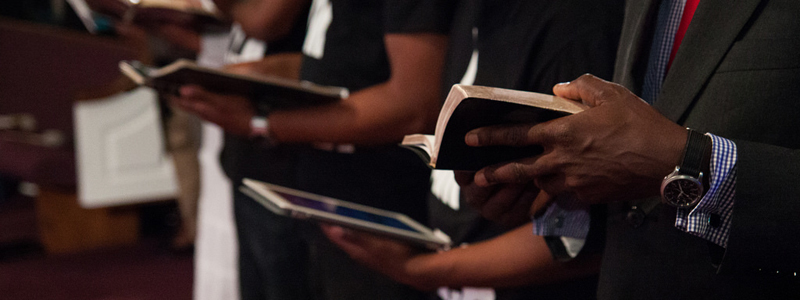
FRIDAY MORNING MANNA
June 13, 2014
Nathaniel Fajardo
Are We Preparing for the Latter Rain?– Part XXXIV
A Sabbath-Keeping People
“In the beginning God created the heavens and the earth.” Genesis 1: 1. In the bosom of these very first words of the Bible is cradled all the other truths following: the history of creation; the fall of man and its cause, the nature of the great controversy between God and Satan; the plan of redemption prepared before the fall, and the glorious restoration of all that was lost on account of sin—both of man and the whole earth.
Because man alone, the crowning act of creation, was created in the image and likeness of the Creator, it was natural for him to joyfully keep the memorial day of God’s appointment. It was in their nature to love, adore, obey, worship, and glorify their Creator who had made a perfect world and a perfect Eden home for them before creating them. The earth was designed to be Adam’s kingdom. Genesis 1: 26, 27.
God wrote the word “Remember” in the fourth commandment of the Decalogue, which He says is His covenant (Deut. 4: 13), for, Omniscience knew that:
“The great apostate would succeed in exalting himself “above all that is called God, or that is worshipped” (2 Thessalonians 2: 4). He would dare to change the only precept of the divine law that unmistakably points all mankind to the true and living God. In the fourth commandment, God is revealed as the Creator of the heavens and the earth, and is thereby distinguished from all false gods.
It was as a memorial of the work of creation that the seventh day was sanctified as a rest-day for man [immediately after creation]. It was designed to keep the living God ever before the minds of men as the source of being the object of reverence and worship. Satan strives to turn men from their allegiance to God, and from rendering obedience to His law; therefore he directs his efforts especially against that commandment which points to God as the Creator.” (E. G. White, Great Controversy, (1911) pp. 53, 54.
Milton Charles Wilcox, author of “Questions Answered” (Biblical), “The Surety of the Bible,” wrote:
“At the close of that wonderful week of Genesis 1, our Lord instituted the Sabbath. This He did in three specific steps; one was not sufficient, or with Infinite Wisdom one would have sufficed. He did not leave the portion of time or the day to be inferred by human reasoning. But He instituted the Sabbath in such a way, and left us concerning and unquestionable record. It reads as follows: ‘Thus the heavens and the earth were finished, and all the host of them.
And on the seventh day God ended His work which He had made; and He rested on the seventh day from all His work which He had made. And God blessed the seventh day, and sanctified it: because that in it He had rested from all His work which God created and made.’ Genesis 2: 1-3, K.J.V.
The First Step—God Rested. “Sabbath means rest. God’s resting constituted the last day of the septenary cycle, or week, God’s Sabbath, or rest day. He did not rest because He was weary; for ‘the everlasting God, Jehovah, the Creator of the ends of the earth, fainteth not, neither is weary.’ Isaiah 40: 28. He rested in order to lay the first stone in the foundation of the Sabbath institution.
It was a necessary act. The seventh day could not be the Sabbath, or rest day, of Jehovah until Jehovah rested on that day. He rested on no other. Henceforth that day must be the rest day, or Sabbath, of Jehovah. Nothing [or anyone] can change that fact. He rested on the seventh day; He rested on no other’ therefore, the seventh day and the seventh day only could be the Sabbath of Jehovah.
“To illustrate: A boy is born on April 9. That is his birthday. Nothing that he or all the nations of earth can do will ever change that fact. He could say that he was born on October 1, but it would not alter his true birthday. So with the Sabbath. On the seventh day God rested. That is a fact. God cannot change it (we speak with all reverence), for God ‘cannot lie,’ ‘He cannot deny Himself.’ Therefore it must ever remain true that the seventh day of the week, and the seventh day only, is the Sabbath, the rest day, of the Creator.
The Second Step—God Blessed. – “He blessed the seventh day. That made it God’s blessed rest day. Had He only rested upon it, it would have been different from the other six days only in what was done on that day. Its character would have been the same. The six days would have been days of labor; the seventh, a day of rest, and nothing more. But God exalted the seventh day above all others.
He placed His blessing upon it. God blesses that blessings may be multiplied. He blessed Abraham that Abraham might be a blessing to others. Genesis 12: 3. Even so God blessed the Sabbath, that it might be a blessing to all the race. Well would it be if opponents of this divine institution would say with a prophet of old: ‘He hath blessed, and I cannot reverse it.’ Numbers 23: 20.
But that blessing was not alone upon the particular individual day on which the Creator rested; He blessed the seventh day of the weekly cycle in all ages to come. He blessed it ‘because that in it He had rested’ from a finished work. Therefore the seventh day will ever remain God’s blessed rest day, unless the Lord removes His blessing from it; and in doing this His revelation of the removal of the blessing must, in justice, be as clear as the revelation of its bestowal. No man-appointed day, no law, national or international, can change Jehovah’s appointment.
The Third Step—God Sanctified. – “But another act on the part of the Creator was necessary; He sanctified the day. That is, God ‘separated,’ ‘set apart,’ and ‘appointed,’ the day to a sacred holy use. In order to set apart, God must give a commandment concerning it. The Hebrew word here rendered ‘sanctify’ is ka’dash. It is defined by Young, ‘to separate, to set apart.’ It is also translated ‘appointed;‘ margin, ‘sanctified,’ in Joshua 20:7.
The cities there appointed were set apart by commandments, or laws, concerning them. See Joel 2: 15, ‘Sanctify a fast.’ In 2 Kings 10:20, the Hebrew word is translated ‘proclaim’—‘Proclaim a solemn assembly for Baal.’ In all these instances the use of the word it either has the force of a law or necessarily implies one. This may be seen in Exodus 19. God commanded Moses, in words both solemn and emphatic (verses 12 to 23), to ‘set bounds about the mount, and sanctify it.’
The mount was separated from common ground by the command of the Lord. The presence of the living God sanctified the mount, or made it holy (verse 20), and the command to the people so to regard it was based upon that fact (verses 21, 22). So, also, it was God’s presence, which made holy ground to both Moses and Joshua (Exo. 3: 2-5; Joshua 5: 13-15), and the command to these servants of the Lord to remove their shoes and reverence the place was based upon the fact of God’s presence.
And this is just what the blessing of Genesis 2: 3 meant concerning the seventh day of the weekly cycle for all coming time; God sanctified it by placing within it, in a special sense, His own presence, and upon it His own blessing, and so separated it from the common days, and appointed it to a sacred use.” – ‘The Lord’s Day, The Test of the Ages,’ Pacific Press Publishing Association, Mountain View, CA, 1931: pp. 11-13.
In the Footnotes on p. 12, referring to the Sabbath day being sanctified, separated, set apart and appointed for sacred, holy use, we read what eminent Bible scholars of other denominations wrote regarding the Sabbath:
“Says the learned Lange: ‘If we had no other passage than this of Genesis 2: 3, there would be no difficulty in deducing from it a precept for the universal observance of a sabbath, or seventh day, to be devoted to God, as holy time, by all that race for whom the earth and its nature were especially prepared. The first men must have known it.
The words, ‘He hallowed it,’ can have no meaning otherwise. They would be a blank unless in reference to some who were required to keep it holy.’ – ‘A Commentary on the Holy Scriptures: Critical, Doctrinal, and Homiletical,’ by John Peter Lange, D.D., in connection with a number of eminent European clergymen. The English translation edited by Philip Schaff, D.D., in connection with American scholars of various evangelical denominations.
“’ And sanctified it.’ Hebrew kadash. It is by this term that positive appointment of the Sabbath as a day of rest to man is expressed. God’s sanctifying the day is equivalent to His commanding men to sanctify it. As at the close of creation the seventh day was thus set apart by the Most High for such purposes, without limitation to age or country, the observance of it obligatory upon the whole human race, to whom, in the wisdom of Providence, it may be communicated.
This further appears from the reason why God blessed and sanctified it, viz., because that in it He had rested,’ etc., which is a reason of equal force at all times and equally applying to all the posterity of Adam; and if it formed a just ground for sanctifying the first day which dawned upon the finished system of the universe, it must be equally so fro sanctifying every seventh day to the end of time.
The observance of the day is moreover enjoined in the Decalogue, which was not abolished with the peculiar polity of the Jews, but remains unalterably binding upon Christians in every age of the world . . . The sanctification of the seventh day in the present case can only be understood of its being set apart to the special worship and service of God.’ –‘ Notes, Critical and Practical, on the Book of Genesis, ‘ George Bush (Presbyterian), Professor of Hebrew and Oriental Literature, New York City University (2 vol. ed.), vol. 1, pp. 48, 49, note on Genesis 2: 3).”
(Continued next week)

